
University of Scranton Standardizes Campus AV with Extron
The University of Scranton in Pennsylvania is a private Catholic and Jesuit university founded in 1888, with a student body of approximately 5,400 undergraduates and graduates. It offers degrees in business and management, computer science, chemistry, nursing, physical therapy, occupational therapy, and counseling.
When the university first began planning the AV systems refresh of the Kania School of Management in Brennan Hall at their 58‑acre hillside campus six years ago, they determined that standardizing the classroom AV systems would be beneficial for instructors, students, and the technical support staff. A taskforce was formed, teaming the university’s Academic and Media Services – AMS with the experienced AV integration firm, J.P. Lilley & Son. Following an exhaustive search for the right balance between features, capabilities, scalability, usability, and cost, the taskforce selected Extron digital switching, distribution, and control products. After a successful pilot system installation for the Alperin Trading Lab in Brennan Hall, standardization was slated to encompass all existing classrooms, lecture halls, and presentation spaces in the new building, as well as being applied to future buildings. The university standardized on Extron DTP ® and XTP Systems ® for digital switching, Extron Pro Series for presentation control, and selected GlobalViewer ® Enterprise to enable centralized management of all AV resources.
“The benefits of standardizing technologies have been documented many times: consistent user experience, ease of maintenance, and higher return on investment,” says Robert Kennedy, Media and Control Systems Engineer at the University of Scranton. “We have successfully standardized on the Extron platform across the campus.”
“We have successfully standardized on the Extron platform across the campus.”
AV Goals and Challenges
Every classroom was designed to act as a backup for another classroom, while large venues had to support complex presentation needs and serve as overflow. AV system requirements included the ability to display HDMI signals at resolutions up to 1080p/60 and provide both digital and analog AV connectivity, sound reinforcement, and user-friendly control. Additional requirements included streamlined support, reduced quantities of backup equipment, and centralized AV resource management campus-wide as well as by building and room. To achieve these goals, the best solution was to have compatible AV systems with the proper feature mix and built‑in capabilities.
Classroom Design Features Extron DTP CrossPoint All-in-One Digital Switcher
Each classroom or lab podium provides a variety of sources, including a resident computer, a Blu‑ray ® player, a document camera, Apple ® TV or a wireless collaboration system, along with digital and analog AV connectivity through an Extron Cable Cubby ® enclosure. Class material is displayed using one or more Panasonic ® projectors, depending on room size. The current PT‑RZ370 projector model has a native resolution of 1080p, and provides an HDBaseT input that is DTP ® and XTP ® compatible.
For the initial phase of this multi-year project, the classroom design originally used the Extron IN1606 scaling presentation switcher and later the IN1608 with eight inputs to support classroom needs. For rooms with more than a single display, the design specified an Extron DTP CrossPoint matrix switcher. Currently, all classrooms use either the IN1608 or an Extron DTP CrossPoint 82 4K IPCP MA 70 matrix switcher, depending on room size. The switcher is rack-mounted within the podium. The DTP CrossPoint line provided the core functionality of a conventional classroom system, including automatic switching between devices with HDMI or VGA outputs and support for selectable presentation on multiple displays. It also offered enhanced capabilities, such as video scaling and built‑in audio distribution.
The system designer elected to take advantage of the matrix switcher’s HDBaseT™-compatible outputs to streamline the installation. The DTP outputs on DTP CrossPoint models can be configured for compatibility with HDBaseT-enabled display devices, such as Panasonic's Digital Link projectors. Video with embedded audio, along with RS‑232 control signals, are extended over a shielded CATx cable directly to the Digital Link™ input on each projector, eliminating the need for a separate receiver.
The selected Extron matrix switchers easily supported the required transmission distances, with some rooms requiring signal extension from 50 feet (15 meters) up to 320 feet (98 meters). Relays on the matrix switcher enable the projection screens to be lowered and raised from the front of the room. The DTP CrossPoint ® model offerings made it easy to match the right product with the room's projection system needs. “Setting up the DTP matrix was simple with Extron’s Product Configuration Software ,” says Kennedy.
The microphone for the ALS – assistive listening system is connected to one of the matrix switcher’s four MIC/LINE inputs, and one of the two audio outputs supports the ALS speakers. For the rest of the class, the built‑in 100W 70V audio amplifier distributes signals to two or more pairs of the low-profile Extron FF 120T Flat Field ® ceiling speakers. Flat Field technology reduces beaming of mid and high frequencies directly under the speaker and delivers consistent sound levels across the listening area, resulting in fewer speakers needed per room. The integrated audio features further streamlined the classroom design.
The IP Link Pro control processor built into the DTP CrossPoint matrix switcher provided easy integration of the Extron TLP Pro 720T 7" TouchLink ® Pro tabletop touchpanel. Connection of the touchpanel to the matrix switcher’s Gigabit Ethernet switch enabled customized control of the AV system, including the sources, display devices, projection screens, lighting, and window shades, as well as occupancy sensing. An Extron XTP PI 100 PoE injector allows the TLP Pro 720T to receive power and control over a single Ethernet cable, eliminating the need for a local power supply. This also simplified wiring and reduced installation costs per classroom.
In addition to supporting DTP transmitters and receivers, the twisted pair ports of the DTP CrossPoint allows linking to XTP Systems used in the large spaces for flexible, facility-wide signal distribution.
XTP Systems for Large Presentation Spaces and Divisible Rooms
The taskforce determined that Extron’s XTP Systems integrated solution as well as the just-released Pro Series control processors and touchpanels were well suited to the larger presentation spaces. “We knew Extron made products we could depend on. Their lines had everything we wanted for our sophisticated rooms,” says Kennedy.
Pilot Project
As proof of concept, AMS replaced the analog AV system within the Alperin Trading Lab at the university's Kania School of Management. An Extron XTP CrossPoint 1600 modular matrix switcher is configured 8x12. One of the two XTP CP 4i HDMI input boards supports devices installed in the instructor station, such as the resident computer and document camera, while the second input board accepts transmissions from two Visix ® digital signage players and an Extron Annotator 300 .
The two XTP CP 4o output boards enable AV and control signal selective transmission to the room’s 19 displays, including direct support of four flat panel displays and a projection system in the main lab area and to the three training pods. The system designer chose Extron XTP SR HDMI scaling receivers to ensure that video is shown at the optimal resolution for each display device. within each Training pod, either an Extron HDMI DA4 or HDMI DA6 distribution amplifier is installed with the receiver. The distribution amplifier sends the scaled video signal to the pod's student station monitors. As with the classroom design, use of the XTP quick setup menu feature on the Panasonic projector simplified the system design and integration, while providing operation that is transparent to the end user.
An XTP CP 4o HDMI output board enables signal extension to the instructor’s interactive touch display and Extron Annotator 300. These sources are looped back into the XTP matrix switcher, allowing annotation over all video sources. The audio output on the HDMI output board connects to an Extron XPA 2001 two-channel amplifier. To control the display devices, the XTP CrossPoint 1600 sends RS‑232 signals to the XTP scaling receivers over the same twisted pair cable as video and audio, which simplified cable management throughout the room.
The XTP CrossPoint 1600 model selected includes a redundant power supply, ensuring a quick changeover to the backup power supply in the unlikely event of a power supply failure. The task force deemed this as a must for their buildings where reliability is an important factor.
A TLP Pro 720T TouchLink Pro touchpanel works in conjunction with an IPCP Pro 550 IP Link ® control processor to provide a simple and intuitive interface for monitoring and managing content presentation within the training pods, as well as throughout the lab. Ethernet connectivity through the XTP CrossPoint matrix switcher also allows remote AV system control over the building’s network.
AV System Upgrades in Phases
The upgraded Alperin Trading Lab was an immediate hit with the students and instructors alike. The follow‑up projects involved a number of areas, including the DeNaples Student Center's digital signage distribution system, the Moskovitz Theater, and the three-way divisible McIlhenny Ballroom, which is the largest integrated AV meeting space on campus.
The ballroom design shares an XTP CrossPoint 1600 for the divisible space, which provides content for each room configuration. It provides signal switching and distribution to the three projection systems from the AV sources, such as a Yamaha ® Blu‑ray Disc player, a connected device, or content shared through the Extron IN1606 scaling presentation switchers. These switchers enable local source selection at each of the three ballroom podiums prior to transmission to the matrix switcher. The localized sources are connected to Extron XTP T UWP 202 and XTP T HDMI transmitters for signal extension to the centrally located XTP CrossPoint matrix switcher. In addition to the XTP scaling receiver, the design uses the Extron XTP R HWP 201 wallplate receiver with an angled HDMI connector that is oriented up at 90°, which allows minimal space between the display device and the wall or ceiling. Similar to the Alperin installation, an IPCP Pro 550 control processor and the TouchLink Pro touchpanel provide independent AV system control in each configured room. The four TLP Pro 720T touchpanels, one in each podium and one on the back wall, can also work in unison within the larger combined spaces.
The new AV systems installed across the university’s large venues were appreciated by the instructors and staff who use them. These successful outcomes continued when the task force integrated other spaces with a combined XTP and DTP design. The staff in charge of facility-wide information sharing and event notifications were able to distribute targeted content to a variety of destinations. For example, the XTP CrossPoint 3200 on the first floor of the DeNaples Student Center is linked to the XTP CrossPoint 1600 in the ballroom and the DTP units in other meeting spaces within the building. Images can be sent at any time, not only to the projectors within each room, but to any of the 17 additional display devices within the building. Content can be easily distributed to hallways and common areas, as well as to the overflow and divisible rooms.
Extron’s XTP Systems, DTP products, along with the Pro Series control processors and touchpanels enabled the university to standardize its larger and more complex venues on the same AV platform as its classroom design.
Control Versatility with Pro Series and Python
The podiums in the large rooms mirror the classroom design, with each providing a TLP Pro 720T TouchLink Pro touchpanel that enables the presenter to easily control resident, connected, and remote devices, as well as the environment. During high-profile events, a technician provides control from the back of the configured space using a separate TouchLink Pro touchpanel. Content can also be distributed between rooms for overflow situations. The combination of a TouchLink Pro touchpanel, an IPCP Pro control processor, and GC Pro software allowed for complex logic statements, which was needed to support the large venues and divisible spaces.
Use of GC Pro was part of the original concept for the Center for Rehabilitation Education as well. However, when Extron released Global Scripter ® , an integrated development environment for control systems based on Python, the design for all future AV control systems changed to take full advantage of the flexibility afforded by this programming environment. Although the Alperin Trading lab had already been set up using Global Configurator , the control system was revisited to test the power of Global Scripter programming software. The new scripted program exceeded expectations of the faculty by allowing advanced logic to determine what should occur with each button press.
Global Scripter provided a framework for all the necessary programming elements, including file management, debugging/diagnostic tools, and the Extron ControlScript ® API. An Extron EAP-Certified AMS programmer worked with the initial release, requesting modifications that added capabilities or streamlined the workload. Feedback was provided directly to Extron’s engineers, who sent updates in return. The end result was a programming environment tailored to the needs of the university.
“When it comes to programming, other manufacturers’ offerings are like coding in Basic, very limited,” says Kennedy. “Global Scripter with Python is a full programming environment that is top notch.”
AMS is in the process of writing the Global Scripter code to update a lecture facility that is still running on GC Pro. As an example of how the AMS team is employing Global Scripter for specific AV systems across campus, the TouchLink Pro touchpanels in the divisible ballroom clearly indicate the current configuration, and show only the features associated with that configuration. When a source is selected, the touchscreen displays information about how to use it and whether it requires credentials to log on. It also identifies the correct cables to use to connect a device. In addition, AMS is in the final stages of the AV upgrade for the Loyola Science Center using Global Scripter software.
GVE for Campus-Wide Scheduling and Monitoring
All AV systems have been or are being tied into the university’s centralized control system using Extron GlobalViewer Enterprise – GVE. GVE is a server-based application for campus-wide scheduling and monitoring with time-stamped AV system data collection for reporting. It has allowed the AMS team to assign global schedules, easily add new devices to the network, set up schedules to automatically turn off displays throughout the campus or in individual buildings or rooms at specified times, create and collect reports covering network connections, device usage, and AV equipment inventory, among many other tasks. In addition, the iGVE app allows access to GVE via an Apple ® device, such as an iPad, iPhone, or iPod Touch.
Successes of Standardization
The AV systems across campus were upgraded one by one, and the AV designs for new buildings are uniformly the same. Nearing completion of the entire campus AV systems refresh, all parties associated with the extensive project agree that the university taskforce’s decision to standardize on Extron solutions was the right choice.
The paradigm employs less equipment and costs less to install and maintain because classrooms use identical equipment and shared programming throughout the campus. “Standardization has resulted in easier management along with less overall time dedicated to training and support services,” says Robert Kennedy, Media and Control Systems Engineer at the University of Scranton.


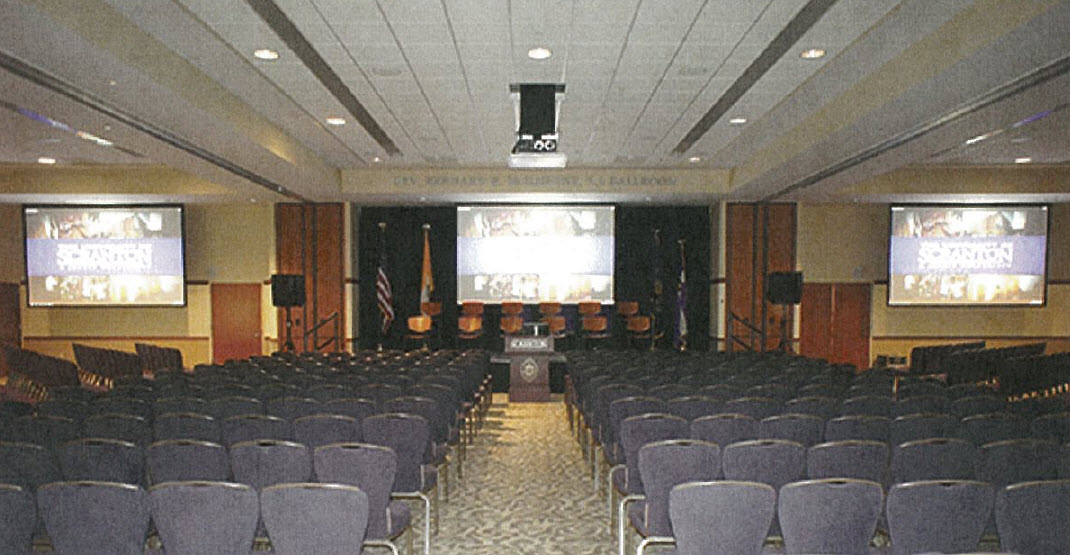
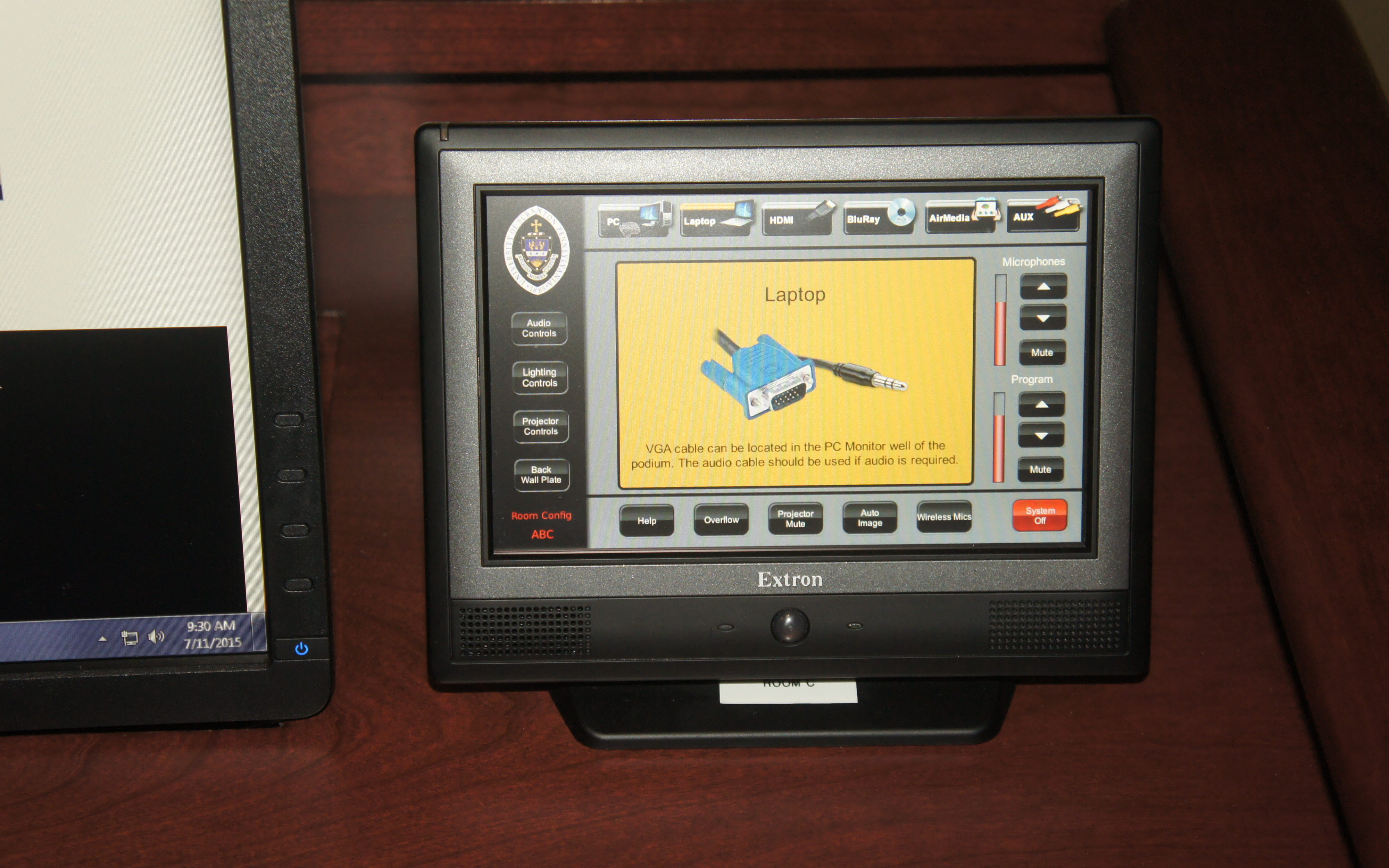
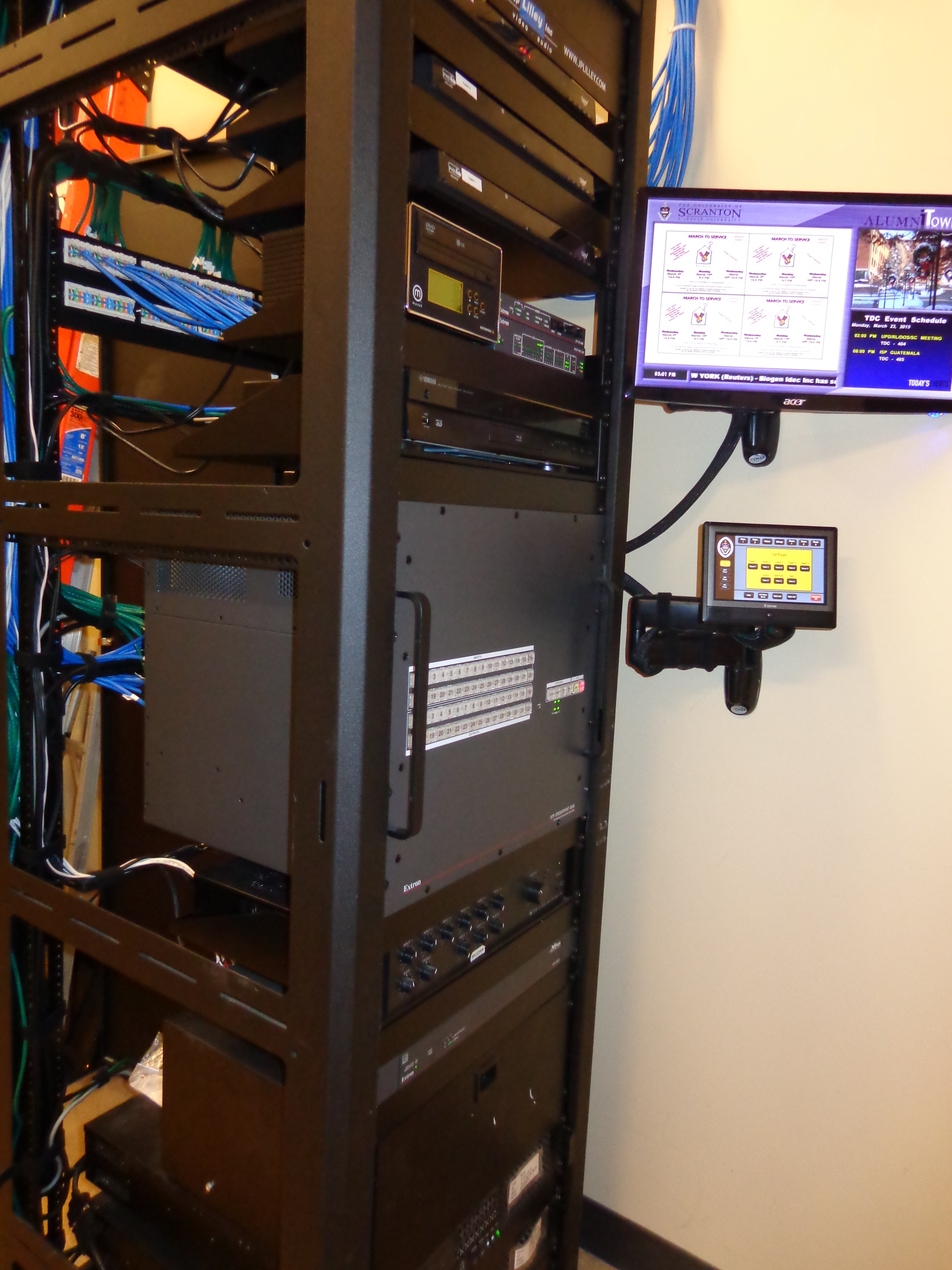
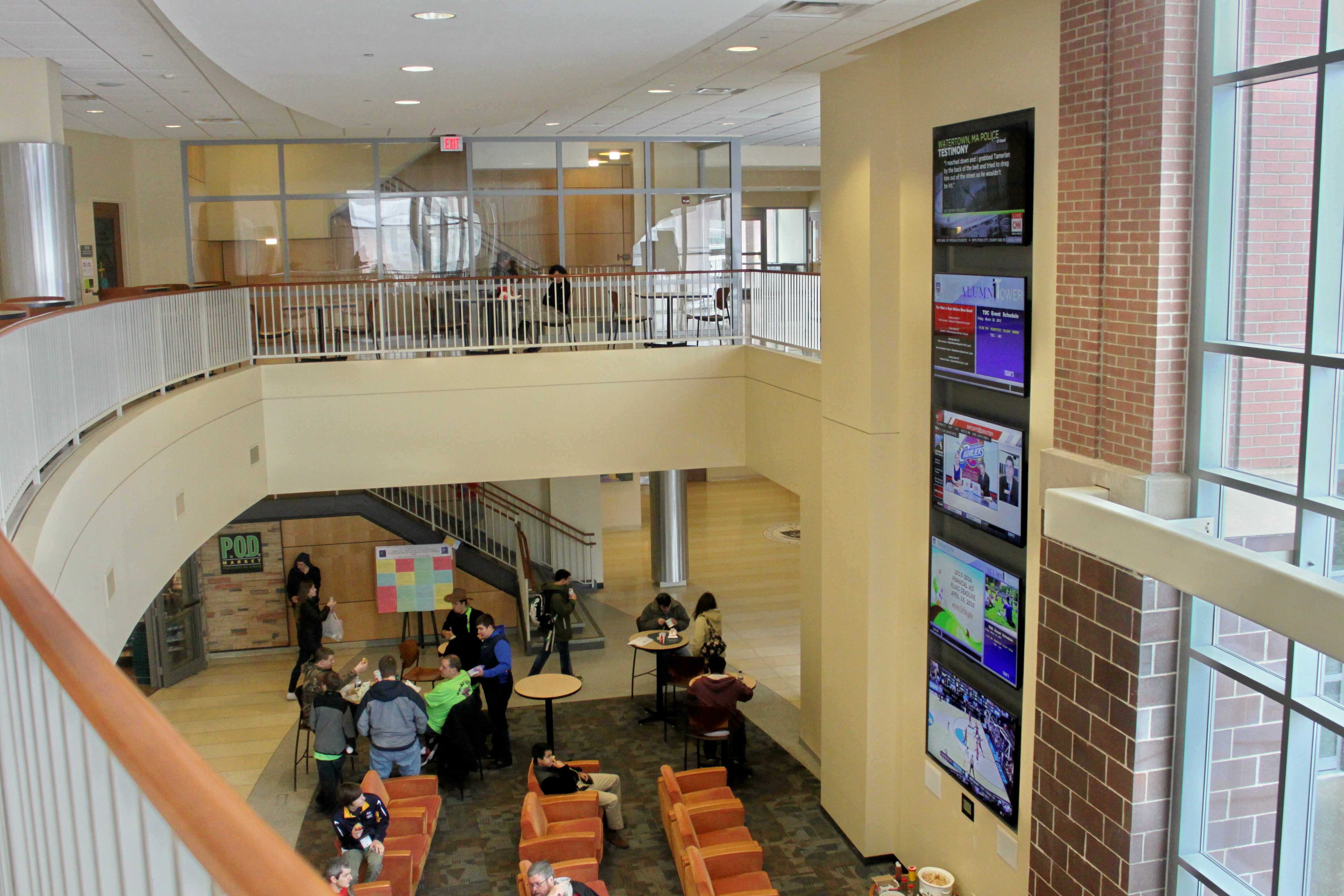

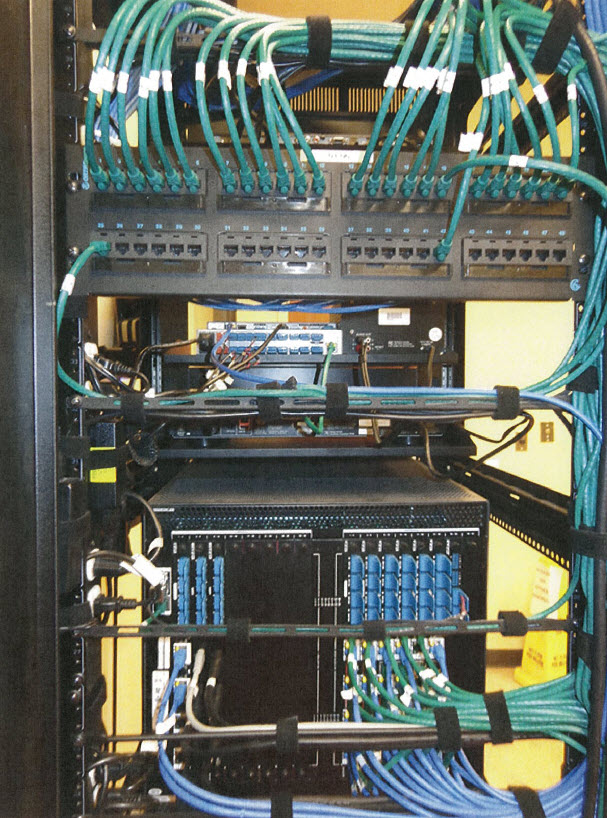
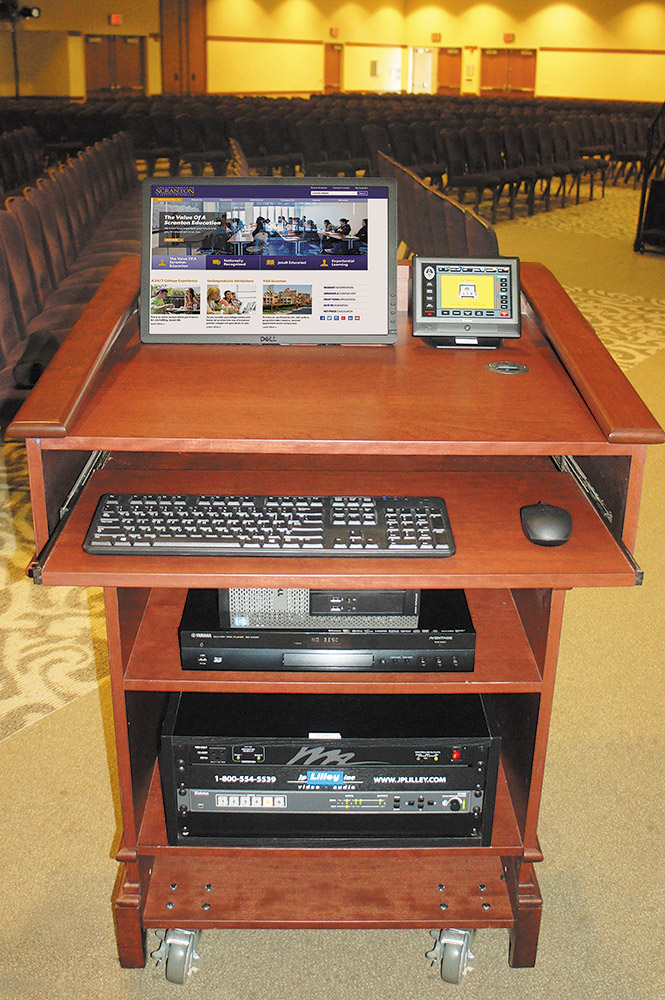
























 Chrome
Chrome
 Firefox
Firefox
 Edge
Edge
 Safari
Safari